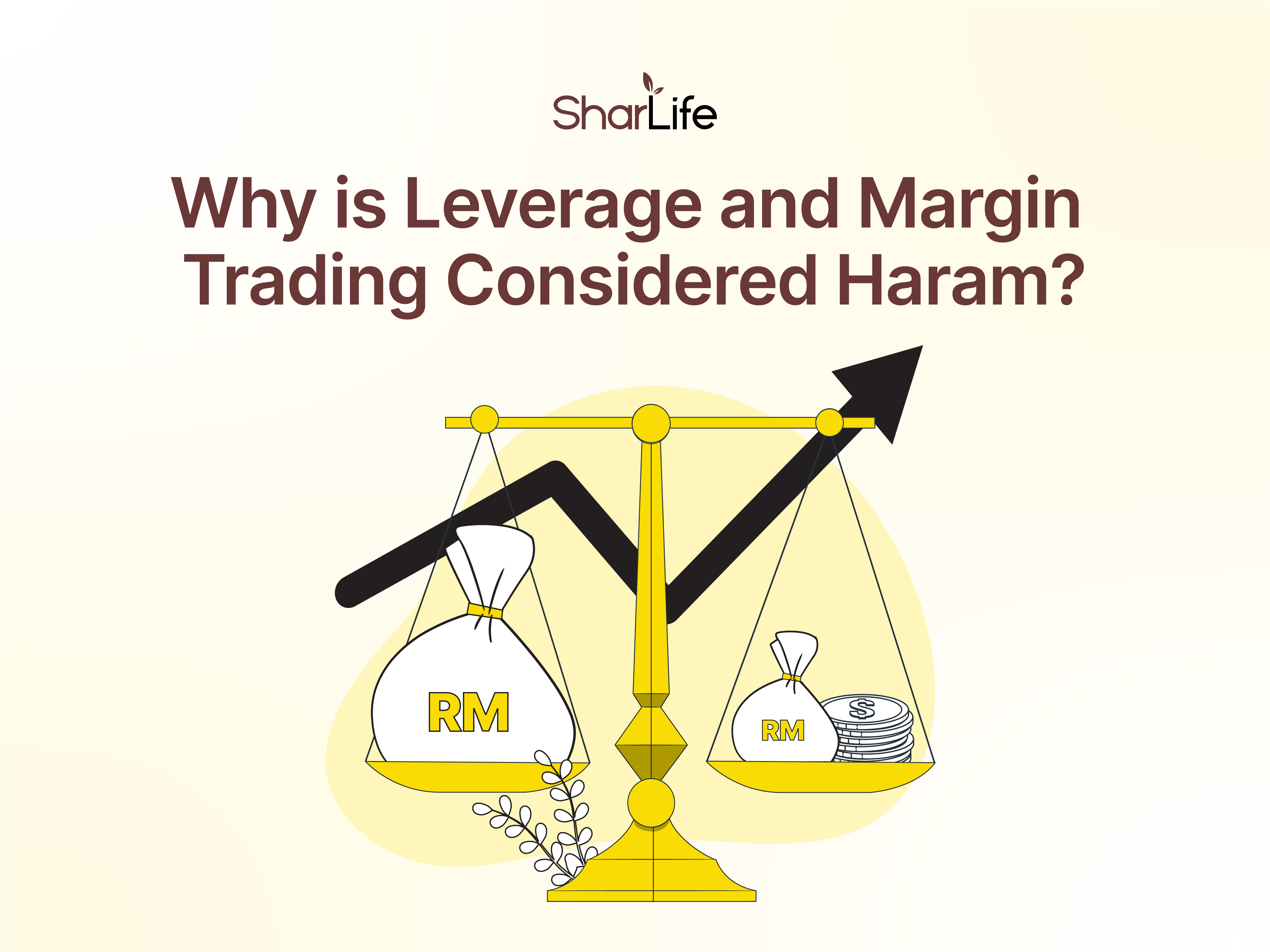Why is Leverage and Margin Trading Considered Haram?

Leverage Trading
Leverage or margin refers to investments made using borrowed funds. In leverage trading or margin trading, the deposited funds used as collateral can determine the amount of the loan provided to investors. By utilizing leverage, investors can increase their opportunities to invest with higher values. For example, if a leverage ratio of 1:10 is offered, it means that with US$100, you can invest up to US$1,000. However, leverage trading carries risks. For instance, when you use leverage trading for investments, not only can your profits multiply, but your losses can also multiply. In this article, the discussion focuses on the Islamic perspective on loans themselves.
Shariah Perspective
The original ruling on loans is permissible (halal). In fact, it is a noble practice when given with the intention to help and facilitate the affairs of fellow Muslim individuals. However, loans can become contrary to Shariah when given for the purpose of making a profit. In other words, loans can violate Shariah when they are utilized as a service within a business. Therefore, one of the reasons leverage can be considered haram is because it involves loan-based business operations aimed at making a profit from the loan, which essentially constitutes a business based on riba (interest). Dr. Wahbah Al-Zuhailiy (may Allah have mercy on him) outlined four conditions regarding valid loans or aqd al-qardh in his book, Al-Fiqh Al-Islamiy wa Adillatuh (Islamic Jurisprudence and Its Evidences):
- Loans must be concluded through the appropriate language of offer and acceptance.
- The lender and borrower must both be of legal age and have the mental faculties that makes him eligible to give charity.
- The Hanafis require that the lent goods be fungible, while the majority of jurists permit lending of any goods that may be established as a liability on the borrower.
- That the lent amount is known (in terms of volume, weight, number, or size), so that repayment of its equal is possible. Also, the lent goods should not be a mixture of two genera, since this would render repayment of its equal very difficult.
The issues that arise in leverage trading are closely related to the fourth condition. Even though the loan amount is clear, there are additional charges imposed on the loan, making it riba. As we explained in the previous article on Why is Online Forex Trading Considered Haram?, exchanging ribawi goods must fulfill the conditions of taqabudh, tamatsul, and hulul. If an exchange fails to meet any of these conditions, it would result in riba al-yadd (interest from hand to hand), riba al-fadhl (interest of excess), or riba an-nasiah (interest over time).
This also raises concerns in leverage trading because it has become common for stock and crypto investment platforms to provide loans to generate profits from interest. This contradicts the principles of Islamic jurisprudence: The fundamental requirement in every contract is justice and Liability accompanies gain. When charges are imposed on a loan, it becomes a form of oppression against the borrower, and if the lender gains profit without bearing any risk, it also violates Shariah based on the two aforementioned principles.
Conclusion
We consider the function of leverage on most investment platforms to be non-compliant with Shariah. However, there are various new innovations from Islamic finance experts striving to provide Shariah-compliant leverage products. Some have even obtained endorsements from authoritative Shariah bodies. In conclusion, we still advise investors to stay away from all leverage.